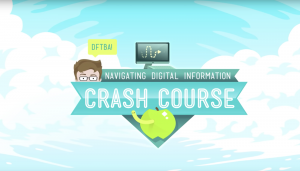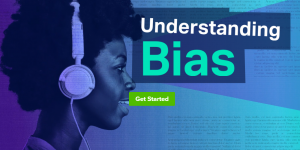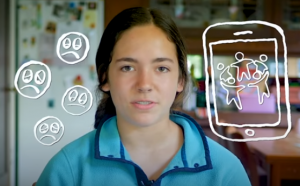From the Homework Help Center Coordinator
Obviously, we’re spending a lot of time online these days. Even before we started holding meetings and game nights and even birthday parties on Zoom, adults logged an average 12 hours of screen time per day while teens spent an average of 7 hours of free time each day online. Now with virtual meetups as our primary way to connect with each other, the negative effects of all that media use are all the more concerning.
Virtual learning in some form is almost non-negotiable this fall. Students may video chat with teachers and classmates on Google Meet, watch interactive lectures on EdPuzzle, or record video responses on Flipgrid. They may review for tests on Quizlet and Kahoot or even opt into an all-online curriculum for the whole year. The point is, students this school year are going to be logging a lot of screen time.
It’s more important than ever that students know how to be safe and responsible online. Here are some great resources to start the conversation.
Common Sense Media’s Digital Citizenship videos address privacy, cyberbullying, and balanced media usage. They have playlists for Grades K-2, Grades 3–5, Grades 6-8, and Grades 9-12. Middle and high school students can watch real teens talk about their struggles with online drama. Also check out their mini–games and choose-your-own-adventure game! Teachers can access a variety of free, full-length lesson plans that go along with the videos.
Crash Course is a staple resource across subject areas. Their Navigating Digital Information series is an in-depth look at deciding which websites and news sources to trust. These information-packed videos are best for high school- aged viewers ready to dig into fact checking and credibility.
aged viewers ready to dig into fact checking and credibility.
Checkology is an absolute go-to when teaching journalism and media analysis to Grades 5-12. Professional journalists lead students through activities that address credible sources, bias in the media, and first amendment rights. The lessons can be self-guided or supplemented with direct instruction. Plus, they are offering their premium lessons for free during the 2020-2021 school year!

ReadWriteThink has a variety of standards-aligned lesson plans for teachers including analyzing advertising techniques and developing online research skills. Their graphic organizers are adaptable to a variety of lessons, not just their predesigned ones.
Final Thoughts
It can be overwhelming to add another item to your digital tasks. Hopefully these resources will provide a common language to discuss internet safety at home and in the classroom, keeping students happy and healthy this school year and beyond.





